Beyond the Buzzwords: Manufacturers Tackle Digital Threads

A manufacturing business is filled with internal processes, workflows and standards, and the average factory generates thousands of data points per day. But how does a manufacturer capture that data? How do they preserve institutional knowledge? What if they could automate workflow, create seamless project handoffs and track development around every stage of a project’s life?
The NAM’s Leading Edge program, in partnership with Siemens, asked a panel of experts these questions in “Beyond the Buzzwords: The Digital Thread Journey,” the first in a four-part webinar series focused on understanding the “digital thread” in the workplace. In the first installment of the series, Siemens Vice President of Industry Strategy Dale Tutt and Anduril Industries Chief of Engineering Tom McCarthy introduced us to the idea of the digital thread—what it is, why it matters and how manufacturers can harness its power to succeed.
What it is: The digital thread is a concept rather than a specific technology. According to Tutt, it is about capturing and connecting every piece of a project’s life cycle digitally, and using that connectivity to provide a seamless transition of information from one functional area to another.
- “We often refer to a digital thread as singular, like it’s a thing,” said McCarthy. “But really, in my mind, it’s a lot of threads. … it ends up being more like a rope than a thread.”
Why it matters: A strong digital thread can automate a manufacturer’s workflow, capture data more effectively, preserve institutional knowledge, trace development processes and even capture the context that informs how decisions are made.
- Radically new technology means that organizations can accomplish these tasks more successfully than ever before—and that those who ignore that opportunity could be left behind.
- “The biggest risk is to do nothing and assume this fad will go away,” said McCarthy.
The challenges: One of the biggest challenges in building a strong digital thread in your own workspace is integration and data management.
- Manufacturing systems need to manage lots of data coming to it in different formats. But according to Tutt, that data needs to be organized in a comprehensible way. “It’s about producing the right data at the right time in the right … format,” said Tutt.
- According to McCarthy, a digital thread isn’t just a database. It is the key that deciphers that data and makes it accessible and intelligible for the user. “We need a Rosetta Stone,” said McCarthy, “to be able to understand how that data maps onto other tools.”
Implementation and technology: New technology and strategic concepts have enhanced our capacity to build strong digital threads—and with that new ability has come a new and urgent need to make use of the concept to strengthen the manufacturing industry.
- To get started on your own digital thread journey, Tutt and McCarthy agreed that manufacturers should dig into the existing workflows in their organization and introduce one tool at a time, rather than trying to engineer a master solution all at once.
- “You can work the digital infrastructure you need for that workflow in pieces, so you can build them up over time,” said McCarthy. “You got to keep your eye on the end game, but if you try to build it all at once, good luck.”
Learn more: To learn more about digital threads, check out the full webinar here.
Coming up: In the next three webinars in this series, Beyond the Buzzwords explores a few of those tools and concepts that drive the digital thread in the modern day: artificial intelligence, cloud advancements and radical flexibility.
PA Manufacturer: Preserve “Keystone” Tax Provisions
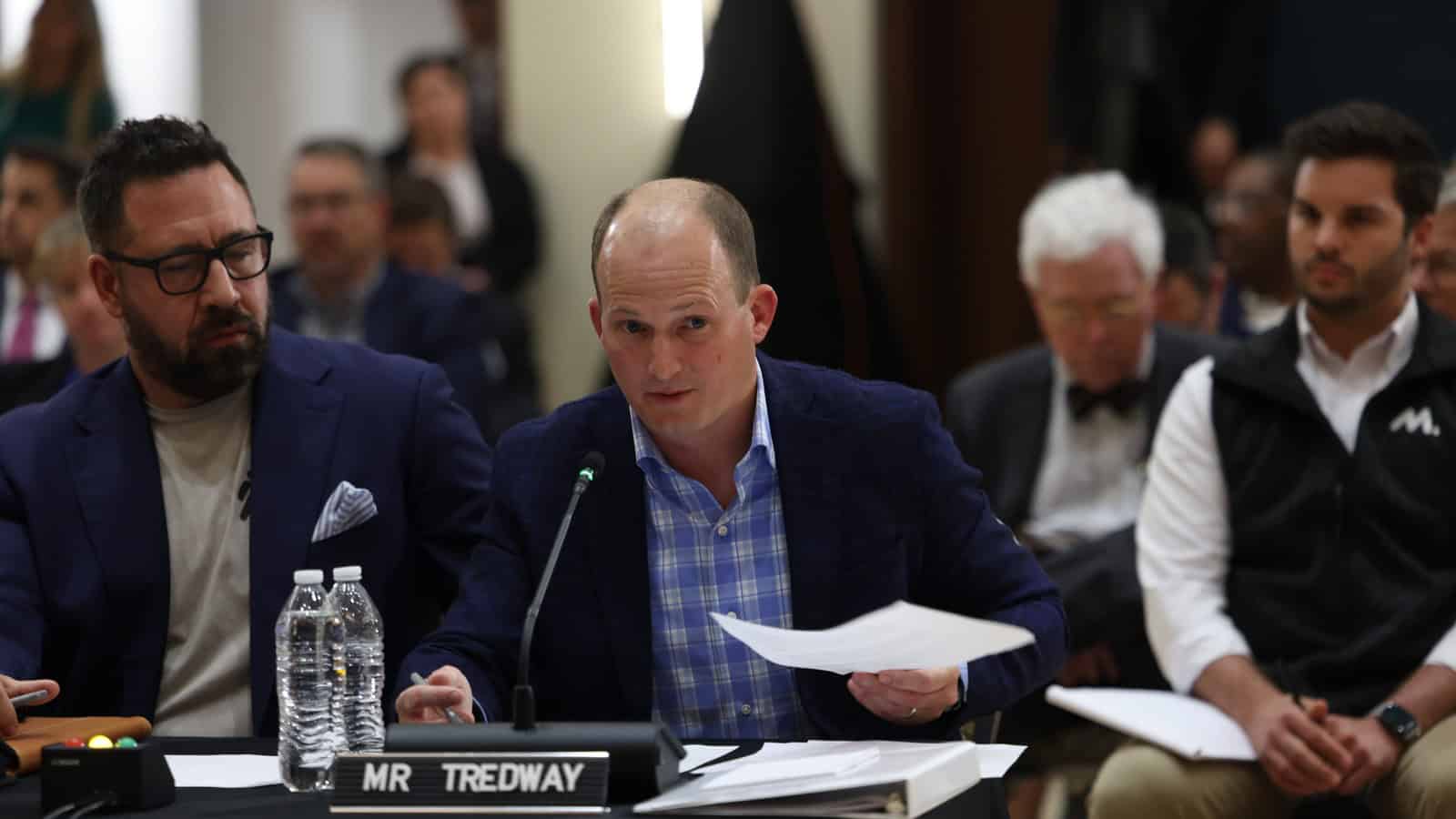
The U.S. tax code is a keystone of our nation’s economic competitiveness, Erie Molded Packaging President Tom Tredway told the House Ways and Means Tax Subcommittee at a field hearing on Monday. But pro-growth tax provisions have begun expiring, with more tax increases on the way next year—so that keystone has started to crack, “weakening the entire structure” of the country.
What’s going on: Tredway gave testimony at a hearing in his hometown of Erie, Pennsylvania, the namesake of his 42-year-old, family-owned custom injection molded parts and packaging solutions company.
- Tredway told Ways and Means Committee Chairman Jason Smith (R-MO), Tax Subcommittee Chairman Mike Kelly (R-PA) and others of the negative effects his business has seen since the expiration of three provisions from the 2017 Tax Cuts and Jobs Act: immediate expensing for domestic research and development, enhanced interest deductibility and full expensing.
- And Tredway put the committee on alert: additional TCJA expirations are scheduled for the end of 2025, and small manufacturers “will be disproportionately harmed” by congressional inaction to preserve these vital policies.
A winning formula: The expired provisions—as well as other, soon-to-expire measures—were like rocket fuel for manufacturers and the rest of the economy.
- “In the years following TCJA, Erie Molded was able to invest nearly $7 million in new capital equipment purchases thanks to full expensing,” Tredway said. “Along with this much-needed equipment, we were able to create new positions across our team, and we were able to deliver higher quality products faster to our customers.”
But now… Tredway’s company has had to delay important equipment purchases, and last year, its taxable income “was almost six figures higher” than Tredway had anticipated.
- What’s more, when the 20% pass-through deduction—currently taken by companies in which profits pass through to the owner and are thus taxed at the individual rate—expires at the end of 2025, Erie Molded Packaging will see another tax hike it can ill afford, “severely hampering [the company’s] growth trajectory.”
What should be done: Congress must pass the Tax Relief for American Families and Workers Act as soon as possible—and act to prevent tax hikes in 2025, Tredway told those at the hearing.
- “I urge every member of this committee to preserve these and the other pro-growth provisions, which allow manufacturers to function as the backbone of our economy and compete on a global scale.”
NAM Files Suit to Block OSHA “Walkaround” Rule
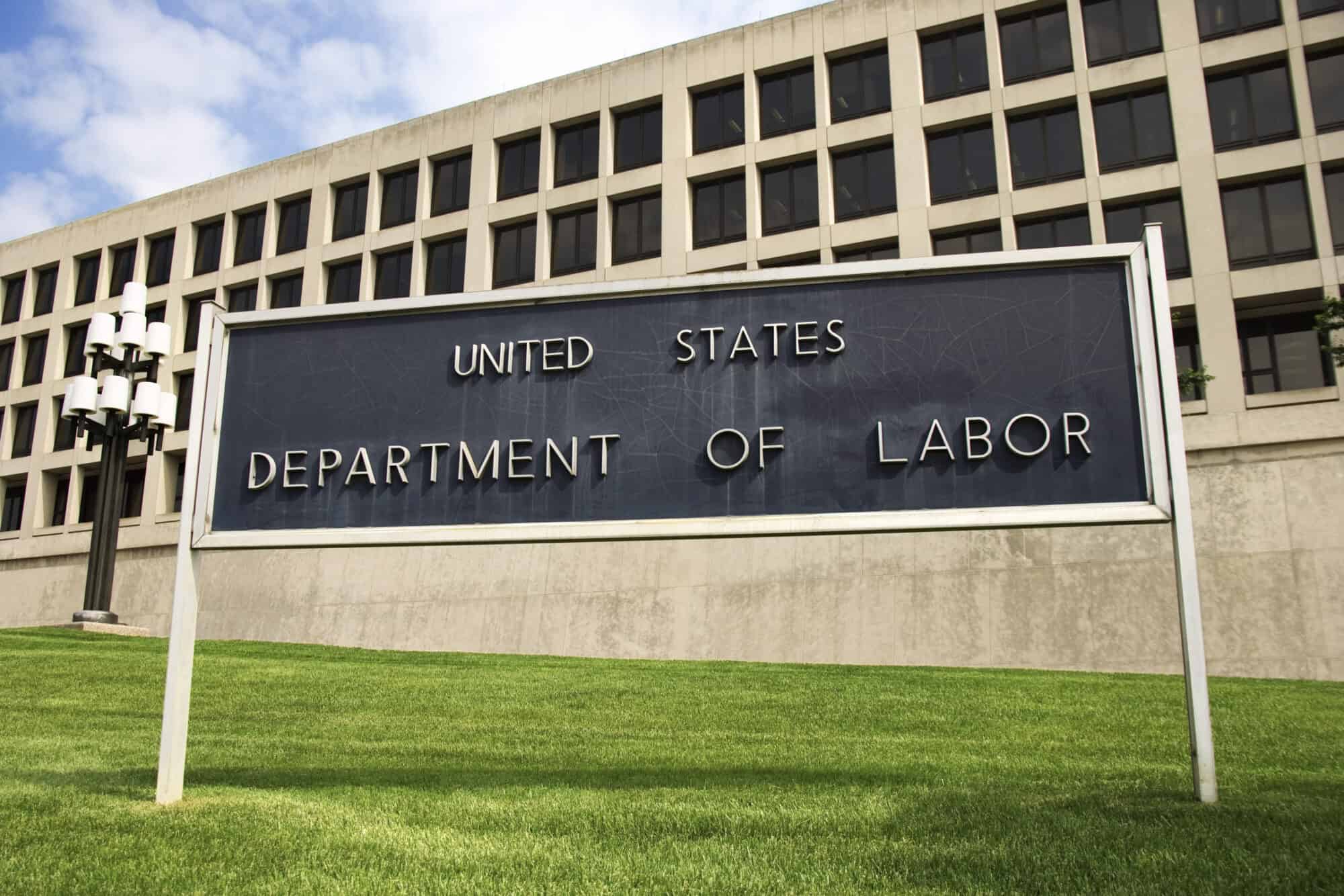
The NAM and allied groups are challenging the U.S. Occupational Safety and Health Administration’s recently finalized “walkaround” rule.
What’s going on: On Tuesday, the NAM, joined by like-minded business organizations, filed a lawsuit in the Western District of Texas to block OSHA’s final rule revising the Worker Walkaround Representative Designation Process. That rule was finalized in April and is set to go into effect May 31.
- The new rule would allow nonemployees—including union representatives, plaintiffs’ attorneys, community organizers and even competitors—to accompany OSHA inspectors on workplace safety inspections.
Why it’s a problem: Not only does the final rule fail to advance the agency’s mission of ensuring workplace safety, but it is beyond the scope of OSHA’s authority. What’s more, it violates businesses’ rights, the NAM said.
- The new regulation “infringes on manufacturers’ right to exclude others from their property, threatens new liabilities and risks compromising manufacturers’ intellectual property. The NAM Legal Center is filing suit to prevent this harm,” NAM Chief Legal Officer Linda Kelly said.
NAM to Senate: Administration March-in Proposal Undermines IP, Innovation

The Biden administration’s push to invoke “march-in” rights is unlawful and would have “disastrous consequences” for the United States if enacted, the NAM told the Senate Tuesday.
What’s going on: Ahead of a Senate Judiciary Committee hearing on intellectual property in the biopharmaceutical sector, the NAM warned of the potentially dire consequences of the proposed march-in framework issued by the National Institute of Standards and Technology.
- The NIST proposal would allow the federal government to “march in” and seize manufacturers’ patent rights if an innovation was developed in any part with federal dollars.
- In the biopharmaceutical sector and other innovative industries, federal funding plays an important role in supporting early-stage research—but further R&D, product development and commercialization require hundreds of millions to billions of dollars in additional capital from investors and established companies.
- Robust IP protections ensure that manufacturers can bring innovative products to consumers.
Why it’s a problem: March-in would violate manufacturers’ IP rights and prevent investment into lifesaving and life-changing technologies, according to NAM Vice President of Domestic Policy Charles Crain.
- “Allowing march-in based on the price of a product or technology, as the NIST guidance proposes … would undermine manufacturers’ IP rights and have sweeping ramifications for innovation in the United States and America’s world-leading innovation economy,” Crain told the committee.
- Committee member Sen. Chris Coons (D-DE) agreed during the hearing that the proposal is fundamentally flawed. “Any company [that] invents [anything] or any researcher who invents anything is now open to the federal government saying, ‘I want that, and I don’t agree with the price you’re setting for it,’” he said.
What should happen: Congress must stop NIST’s overreach, Crain said.
- “Policies that threaten IP protections, like NIST’s proposed march-in guidance, will cede one of our greatest advantages to our competitors. Manufacturers [look forward] to work[ing] with the committee to ensure the U.S. maintains the strongest IP protections in the world in order to spur the discovery and commercialization of inventions that improve health and quality of life for all people.”
NAM, State Partners Call for Immediate Senate Action on Tax Bill
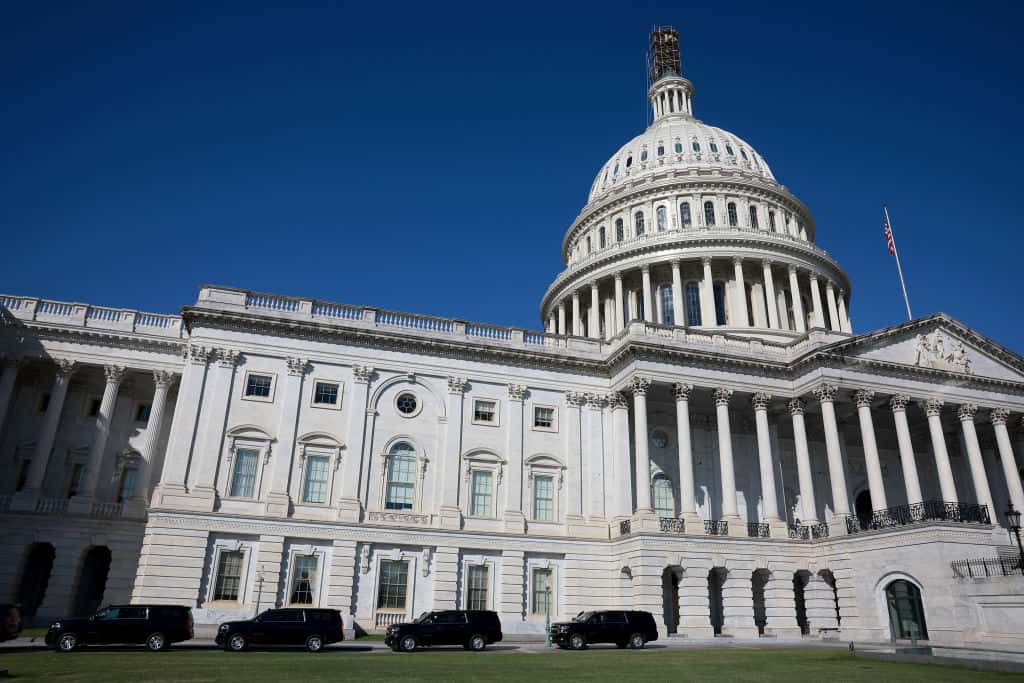
The Senate should immediately pass the Tax Relief for American Families and Workers Act, the NAM and its state partners told congressional leaders this week.
What’s going on: The NAM—along with 47 state manufacturing associations—on Monday continued its longtime, ongoing advocacy for the tax bill, which would restore three sector-crucial tax provisions: immediate expensing for domestic research and development expenses, enhanced interest deductibility on business loans and 100% accelerated depreciation for capital investments.
- “This critical legislation will support the ability of manufacturers in America to create jobs, invest in our businesses, give back to our communities and effectively compete in the global economy,” the groups said.
Why it’s important: If Congress fails to restore these key tax provisions, America’s competitiveness on the world stage will be under threat, they continued.
- “Without tax policies that encourage R&D and capital investment, countries with more favorable tax systems are capturing job-creating manufacturing investments.”
- China, for example, provides a 200% “super deduction” for companies’ R&D expenses, which is 10 times more than the U.S. gives. In 2022, the first full year following the expiration of immediate R&D expensing in the U.S., China’s R&D growth was three times that of the U.S.
What’s next: The Senate must not delay, the associations said. Congress must pass the Tax Relief for American Families and Workers Act—now.
The last word: “The breadth and depth of support for these critical, pro-growth tax provisions throughout the manufacturing industry shows the importance of immediate congressional action,” said NAM Vice President of Domestic Policy Charles Crain. “With additional damaging tax increases scheduled for next year, manufacturers cannot afford further delays.”
NAM Gets New International Policy Lead

Former Assistant U.S. Trade Representative for World Trade Organization and Multilateral Affairs Andrea Durkin has joined the NAM as vice president of international policy, the NAM announced Monday.
An experienced leader: “Andrea brings a wealth of expertise to the job, with more than three decades of service in both the public and private sectors,” NAM President and CEO Jay Timmons said. “As a leader in international trade negotiations, her deep understanding of international policy will enhance the NAM’s strategic objectives significantly as we continue to build off of successful engagements with our counterparts across Europe and the North American continent.”
- Durkin is a foremost U.S. expert on international policy, having worked in both Republican and Democratic presidential administrations. In her most recent role, at the USTR in the Executive Office of the President, she negotiated policy regarding issues before the WTO. She also led the operation of committees on technical barriers to trade, industrial subsidies, trade facilitation and more.
- Her negotiations credentials include free trade agreements in the Western Hemisphere and the trade-related portions of United Nations’ multilateral environment and public health agreements.
A teacher and an entrepreneur: An adjunct professor for 17 years, Durkin taught international trade and investment policy at Georgetown University’s Master of Science in Foreign Service program.
- She is also the founder of Sparkplug, LLC, a consulting firm that specialized in advising corporate affairs teams and think tank leaders on organizational strategy.
NAM Urges Passage of New MTB Bill

The House should move quickly to pass the Miscellaneous Tariff Bill Reform Act, legislation on which the NAM has led advocacy efforts.
What’s going on: On Tuesday, House Ways and Means Trade Subcommittee Chairman Adrian Smith (R-NE) introduced the Miscellaneous Tariff Bill Reform Act, which seeks to renew the MTB—a manufacturing-critical law that temporarily removes or reduces tariffs on products not available in the U.S.—as soon as possible.
- The NAM, which has long urged Congress to take up the issue, lauded the legislation and called for its swift passage.
- “Historically, the MTB has always had bipartisan support, and we thank House Ways and Means Trade Subcommittee Chairman Adrian Smith for his leadership and efforts to introduce MTB legislation,” said NAM Managing Vice President of Policy Chris Netram in a statement cited by Chairman Smith’s office. “We urge the House to act quickly so that we can get one step closer to getting this critical legislation to President Biden’s desk.”
- The last MTB expired in December 2020.
Why it’s important: In the three-and-a-half years that they have been operating without an MTB, manufacturers and other businesses in the U.S. have paid more than $1.3 million a day to get inputs they cannot find in the U.S., according to an NAM analysis.
- Passing the MTB through 2026, on the other hand, and reauthorizing passage of future MTB cycles will boost U.S. competitiveness.
- Tariff relief under the previous MTB increased U.S. gross domestic product by up to $3.3 billion every year, according to the U.S. International Trade Commission.
NAM: Manufacturers Need a Better Section 301 Exclusion Process
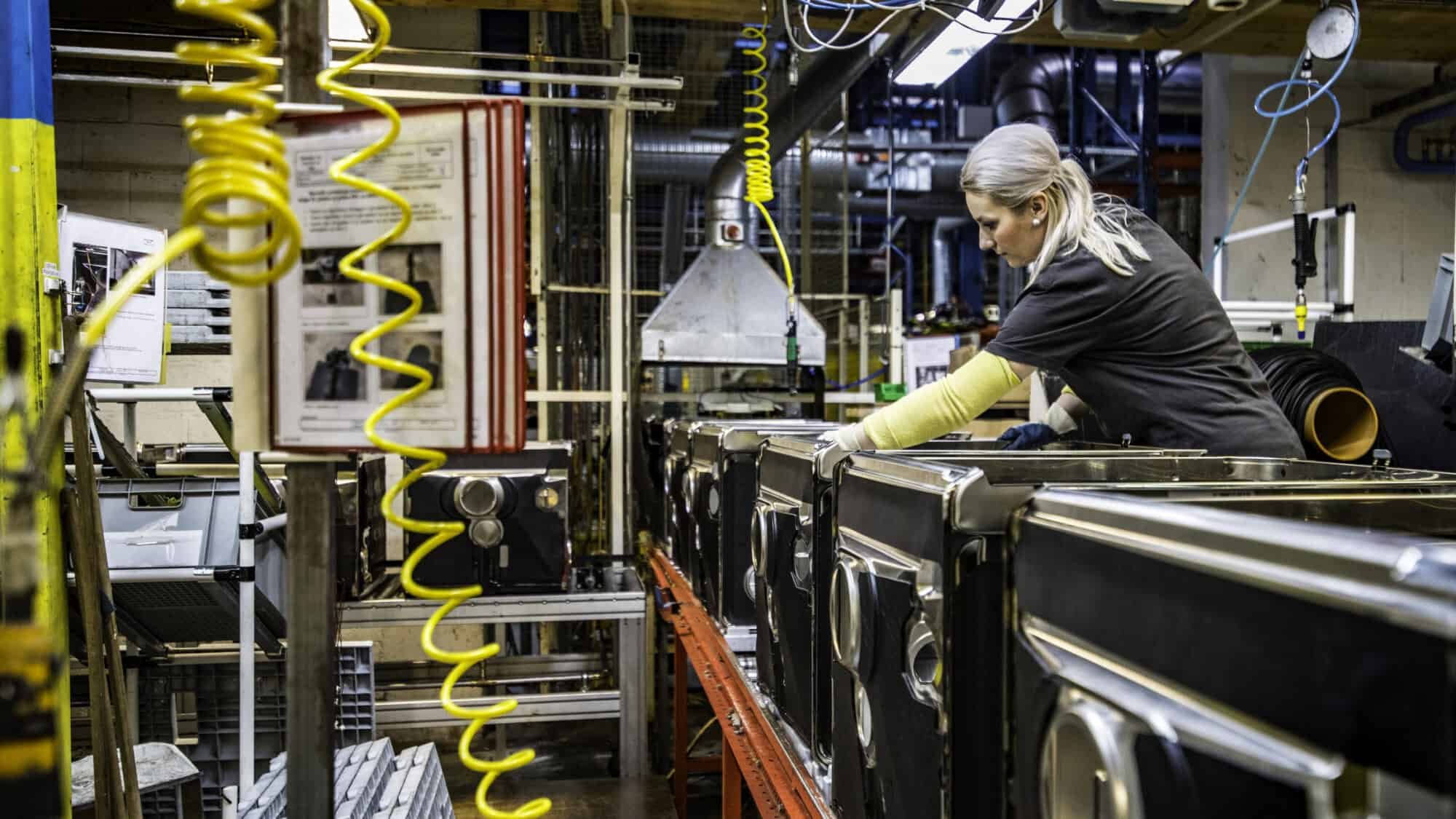
To thrive, create jobs and produce the essential goods the U.S. and our trading partners use every day, the manufacturing sector needs a fair, transparent Section 301 tariff exclusion process, the NAM said Tuesday.
- However, the tariff increases announced this week by the Biden administration could make it much more difficult for manufacturers to produce those critical items.
What’s going on: As part of the U.S. Trade Representative Office’s final Section 301 tariffs review—which the NAM had long urged the office to complete—President Biden said his administration plans to raise “tariffs on Chinese electric vehicles to roughly 100% … increas[e] a key tariff rate on steel and aluminum products to 25% from 7.5%,” raise the solar-cell tariff to 50% from 25% and create a new 25% duty on shipping cranes, according to Reuters (subscription).
- Section 301 of the Trade Act of 1974 authorizes the U.S. to act against foreign trade practices it believes violate agreements. The NAM has been pushing for a finalized report with a fair, transparent Section 301 tariff exclusion process that will both reduce the burden on manufacturers and keep pressure on China to adhere to fair practices.
- The process would allow manufacturers to ask for tariff exclusions for specific products they need.
- “The NAM has long advocated for a full global strategy and a rules-based trading system that benefit manufacturers and workers by opening new markets with our allies,” NAM President and CEO Jay Timmons said.
Why it’s important: Far from freeing the U.S. of “unacceptable risks” stemming from unfair Chinese trade practices, in the absence of a new exclusion process, these tariff increases could limit the ability of manufacturers in the U.S. to obtain needed supplies for goods production.
- This, in turn, could jeopardize U.S. jobs and competitiveness.
- “Manufacturers are concerned about the potential impact this broad swath of tariffs could have on our ability to produce the essential products needed to drive our economy forward, especially if critical inputs become less available and more costly,” said Timmons.
The background: The USTR is legally required to review Section 301 tariffs four years after they are initiated. This most recent review—started in May 2022—is overdue.
- The exclusion process the NAM has long requested allows manufacturers to ask for tariff exclusions for specific products they need.
What should be done: “Manufacturers urge the administration to negotiate new trade agreements with allies and partners around the world and create a new, comprehensive and transparent 301 exclusion process to ensure that manufacturing in America is not being disadvantaged by our own government,” Timmons concluded.
NAM, Allies: Allow Cross-Border Trade

Manufacturers and other businesses on both sides of the U.S.–Mexico border are feeling the pinch from sudden, intermittent port closures and other government measures being taken to mitigate the ongoing migrant crisis, the NAM and two allied groups told President Biden and Mexican President Andrés Manuel López Obrador this week.
What’s going on: Last December, U.S. Customs and Border Protection temporarily shuttered critical rail ports, including San Diego, California, and El Paso and Eagle Pass, Texas, in an effort to stem migration surges, idling nearly 10,000 rail cars on both sides of the border.
- Last month, the Texas Department of Public Safety renewed safety inspections of vehicles between Texas and Mexico, adding hours to cargo trucks’ border wait times (Freight Waves).
Why it’s important: Port closures and increased vehicle inspections “have significantly increased congestion around ports of entry, caused delays to cross-border trade and harmed productive businesses across industries and their employees,” said NAM President and CEO Jay Timmons, Texas Association of Business President and CEO Glenn Hamer and CONCAMIN President Alejandro Malagón.
- The stoppages “risk making critical supply chains between the United States and Mexico less resilient and dependable.”
What should be done: The U.S. and Mexican governments must commit to creating and abiding by predictable, transparent processes for cross-border trade, the groups urged.
- In addition to stopping the port closures for commercial freight and trucking, “our two countries should strive to enhance trading ties as the importance of nearshoring and friendshoring accelerates. Doing so will make our manufacturing, energy and agricultural sectors more competitive globally.”
A Key Trading Partner: The NAM Hosts Make UK, Parliament Members
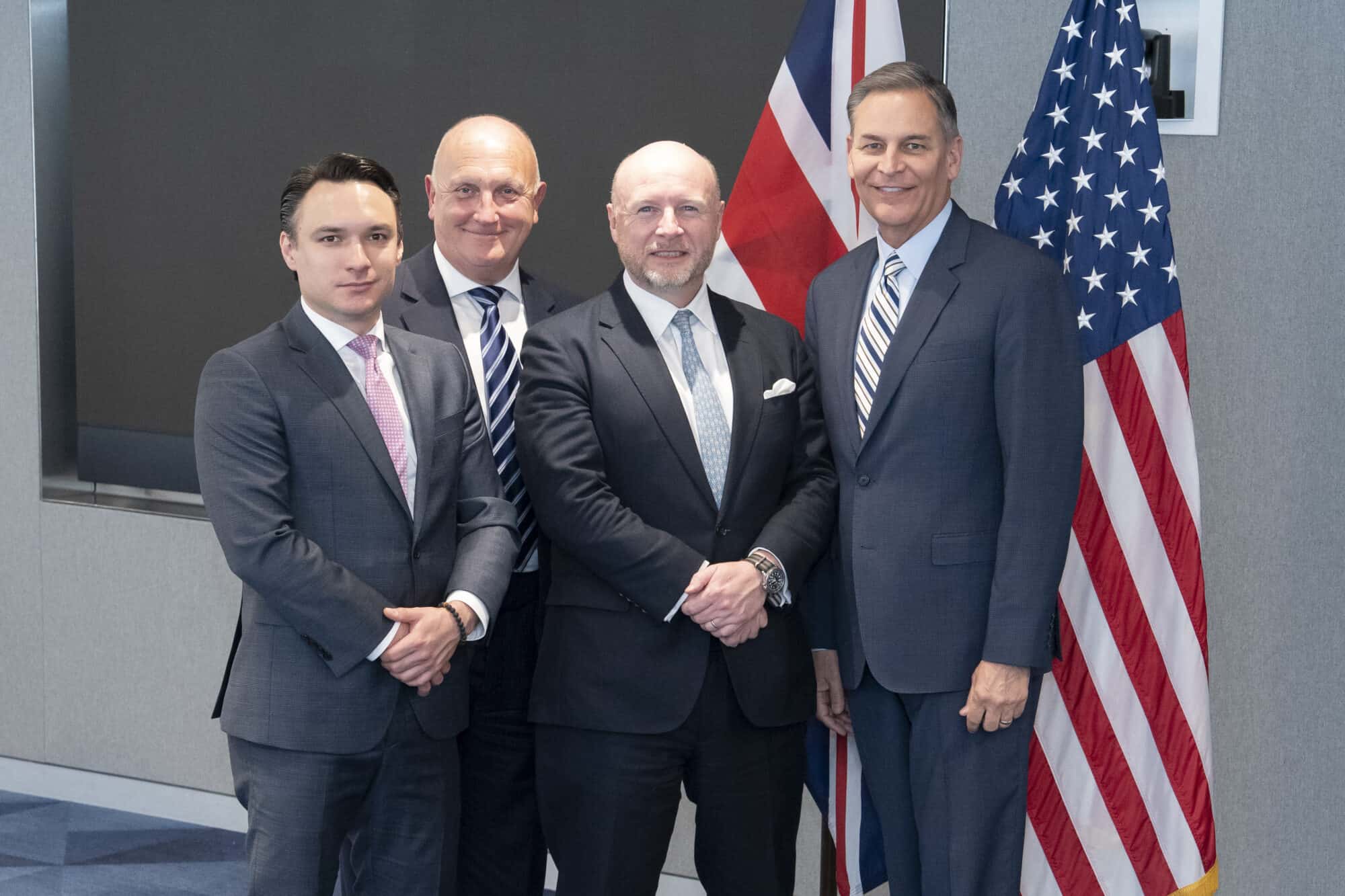
The United Kingdom and United States have many things in common, but perhaps most important is their shared democratic values. These, along with sound trade policies on both sides of the pond, will help propel each respective nation forward.
- That was the main message conveyed during a business roundtable discussion between the NAM and its British counterpart association, Make UK, on Monday.
What went on: In attendance at the meeting at the NAM’s Washington, D.C., headquarters were a delegation of eight members of Parliament who sit on the Business and Trade Commission, British Embassy representatives and nearly two dozen U.S.- and U.K.-based manufacturers.
- The focus of the event—which came approximately a year after the NAM and Make UK signed a memorandum of understanding to collaborate on programming—was to explore ways to enhance the U.S.–U.K. trade and economic relationship. There is no free trade agreement between the U.K. and the U.S.
- The delegation, led by House of Commons Business and Trade Committee Chair Rt. Hon. Liam Byrne of the Labour Party, is also in the U.S. for talks with members of the Biden administration, Congress and the business community to discuss U.K. export growth and manufacturing strategy.
Why it’s important: In the absence of an official FTA between the U.S. and the U.K., the two nations must “be pragmatic about measures our businesses and our governments can take now that will help our economies grow, create jobs, innovate and prosper together,” NAM President and CEO Jay Timmons told the delegation.
- Make UK CEO Stephen Phipson CBE said event attendees all agreed that “as we move closer to our respective domestic elections this year and with the challenges to the framework of global trade continuing, [we must] lean into future bilateral cooperation on trade, innovation, energy and technology, [as well as] defense-sector cooperation.”
Policy talk: Roundtable participants discussed “big-ticket” legislation that has proved particularly important to manufacturers in recent years: the 2021 Bipartisan Infrastructure Law, the CHIPS and Science Act of 2022 and parts of the Inflation Reduction Act of 2022.
- The pro-growth elements in these measures “make our industry more competitive, empowering manufacturers to invest in new facilities and new equipment, expand production and to create jobs,” Timmons went on.
By the numbers: Continued good relations between the U.S. and the U.K. are key not just because of the shared belief in and commitment to democracy, but also because of the large role each nation plays in the other’s economy.
- The U.S. is the U.K.’s single biggest trading partner by country, having accounted for more than 16% of total trade in 2022.
- That same year, U.S. exports to the U.K. were $76.2 billion, an increase of 40% from prior years. Meanwhile, in 2022, American imports from the U.K. were $64.0 billion.
Come what may: Though the U.S. is fast approaching an important and widely anticipated presidential election, the country will stay committed to its relationship with the U.K. no matter who wins in November, Timmons told the delegation.
- “Regardless of the outcomes … we will remain resolved to strengthen our bonds and to do everything in our power to grow manufacturing competitiveness on both sides of the Atlantic.”
